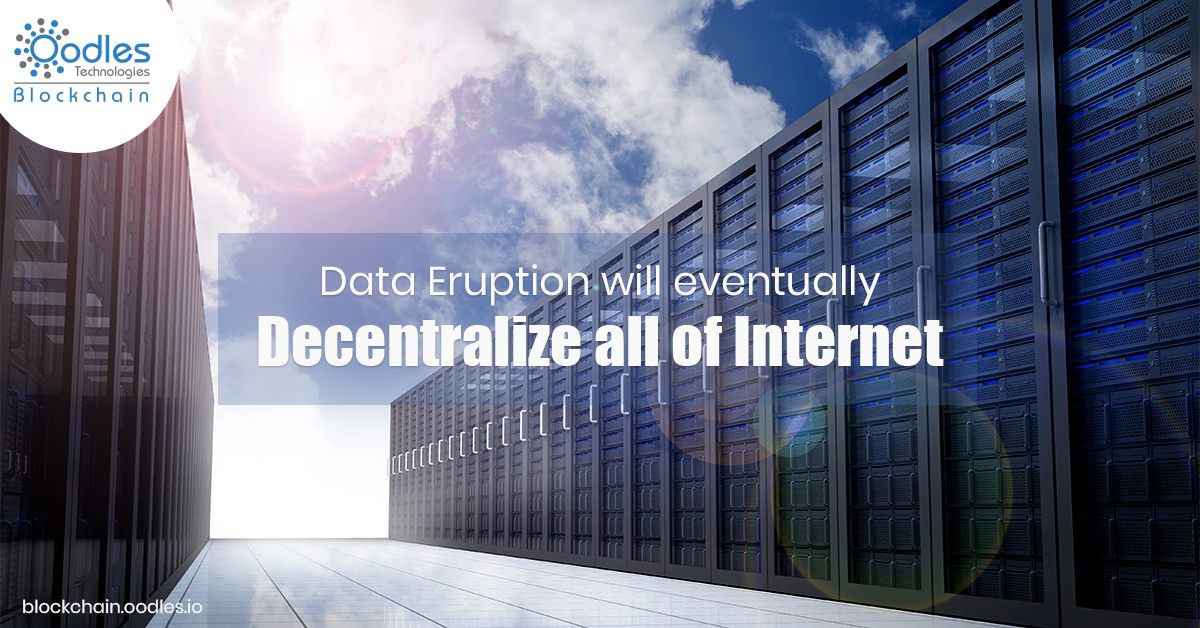-
As nations globally focus on upgrading from 4G to 5G, China is already pioneering 6G technology, aiming for readiness by 2030. With plans underway since 2020, China's ambitious move seeks to catapult data transfer speeds to 1 Terabyte per second, promising unprecedented advancements over 5G's 5 to 10 GBPS. This leap forward will significantly impact blockchain development services.
The Current Data Landscape
Described by Cisco as the "Zettabyte Era," our era sees mobile data traffic projected to soar sevenfold from 2016 to 2021, reaching a staggering 48.3 exabytes per month by 2021. This surge reflects the exponential growth in data creation, with a daily output of 2.5 Quintillion bytes. This data deluge encompasses commercial, non-commercial, and user-generated content across various online platforms, fueled by services like Google and Uber.
The Storage Challenge
This data explosion underscores the critical importance of robust data storage infrastructure. By 2019's end, global spending on data storage is forecasted to surpass $51 billion, driven by enterprises such as Uber, Facebook, Amazon, and Google. Yet, the current centralized server model faces scalability challenges, compounded by the impending data deluge from 5G and 6G technologies.
Also, Check | How UAE is Harnessing the Power of Blockchain
The Role of Blockchain-Distributed Ledgers
In response to these challenges, blockchain-distributed ledgers offer a compelling solution. By decentralizing data storage, they alleviate the strain on centralized servers and empower users and enterprises to own and manage their data securely. Technologies like IOTA, aligned with the Internet of Things (IoT), exemplify the potential of decentralized ecosystems to revolutionize data storage and democratize access to information.
Also, Check | The Rise of Neobanks on the Blockchain
The Future of Data and Technology
As we anticipate the transformative impact of 5G and 6G, blockchain-distributed ledgers emerge as indispensable tools for navigating the evolving data landscape. By harnessing the power of decentralization, these technologies promise a future of data democracy, sustainability, and innovation, ushering in a new era of information exchange and collaboration.
For more information about blockchain or to develop a project on distributed ledger technology, connect with our skilled blockchain developers.

Our Offices
INDIA
Emaar Digital Greens, Sector 61,
Gurugram, Haryana
122011.
Welldone Tech Park,
Sector 48, Sohna road,
Gurugram, Haryana
122018.














